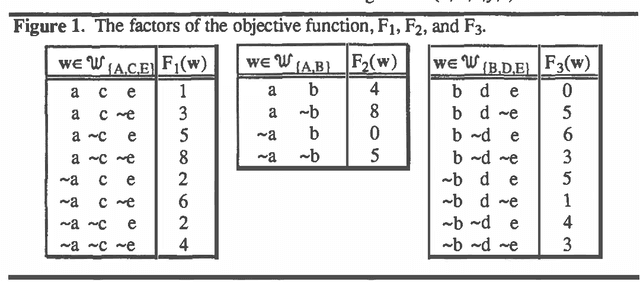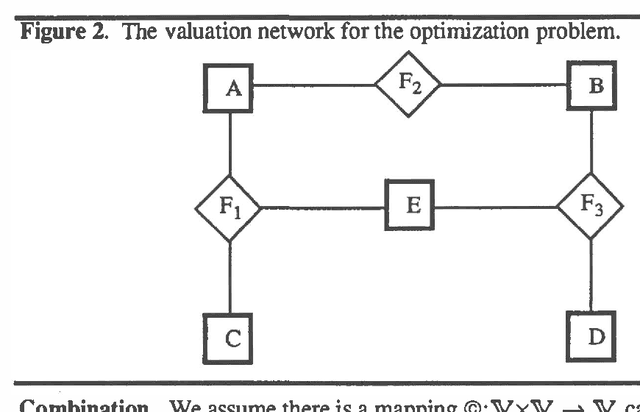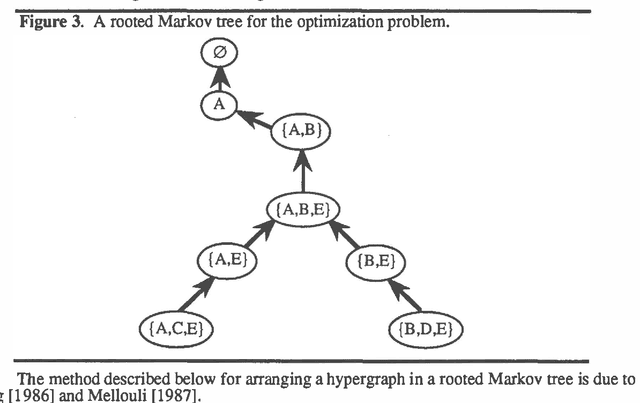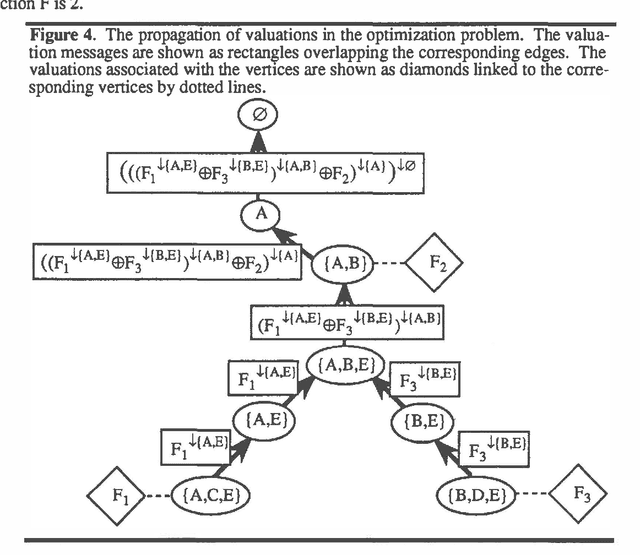Valuation-Based Systems for Discrete Optimization
Paper and Code
Mar 27, 2013



This paper describes valuation-based systems for representing and solving discrete optimization problems. In valuation-based systems, we represent information in an optimization problem using variables, sample spaces of variables, a set of values, and functions that map sample spaces of sets of variables to the set of values. The functions, called valuations, represent the factors of an objective function. Solving the optimization problem involves using two operations called combination and marginalization. Combination tells us how to combine the factors of the joint objective function. Marginalization is either maximization or minimization. Solving an optimization problem can be simply described as finding the marginal of the joint objective function for the empty set. We state some simple axioms that combination and marginalization need to satisfy to enable us to solve an optimization problem using local computation. For optimization problems, the solution method of valuation-based systems reduces to non-serial dynamic programming. Thus our solution method for VBS can be regarded as an abstract description of dynamic programming. And our axioms can be viewed as conditions that permit the use of dynamic programming.
 Add to Chrome
Add to Chrome Add to Firefox
Add to Firefox Add to Edge
Add to Edge